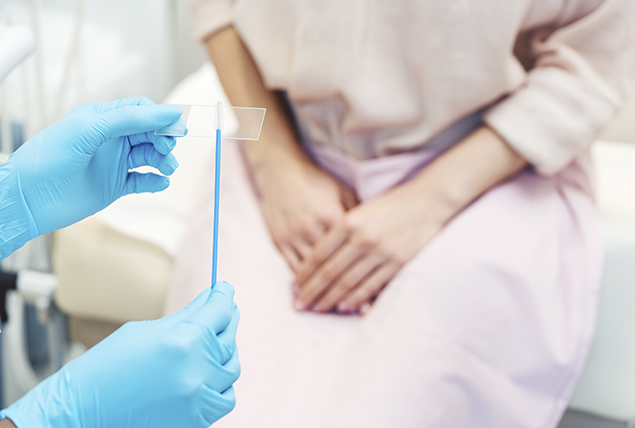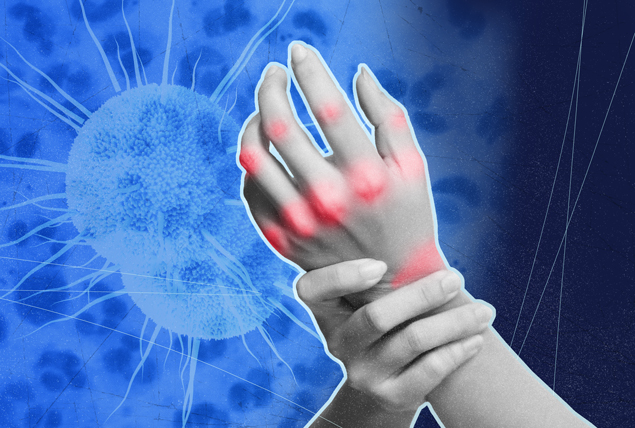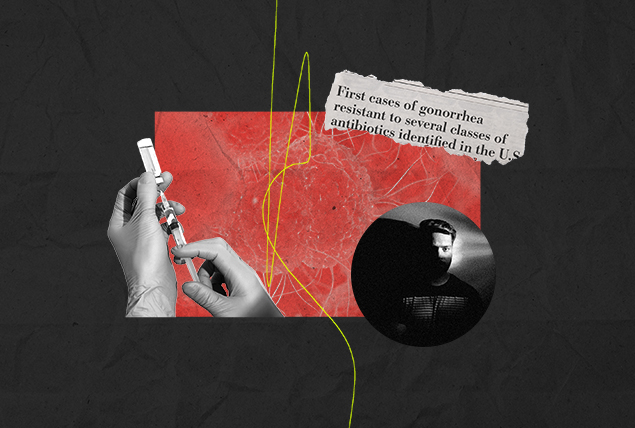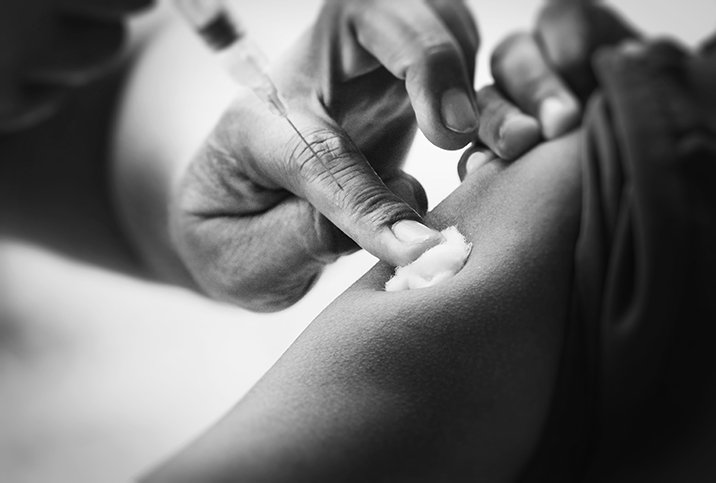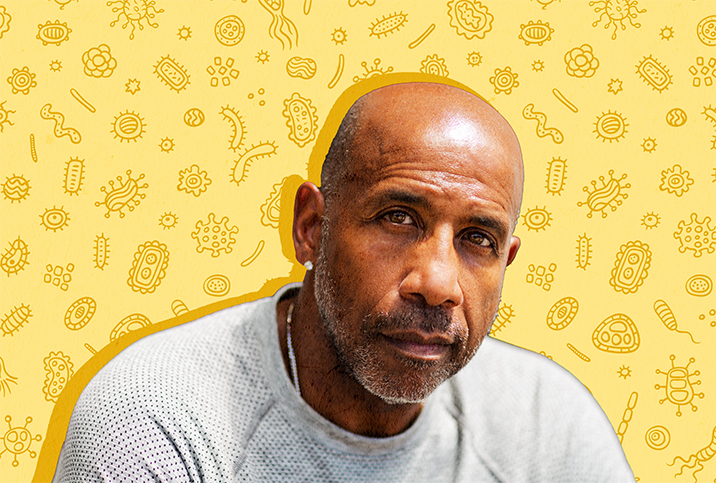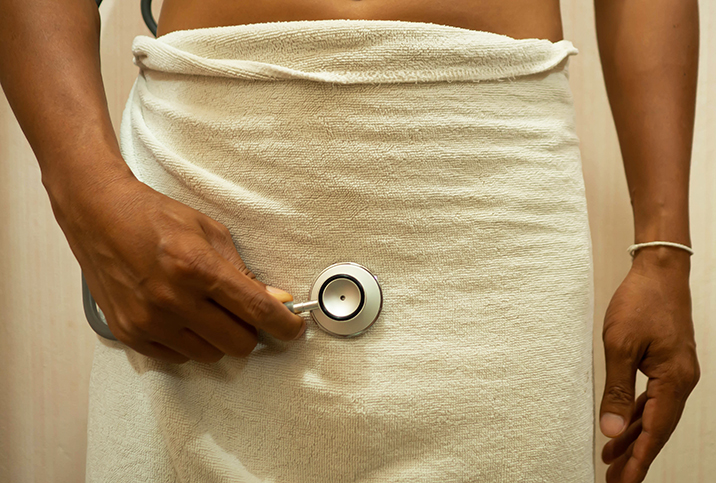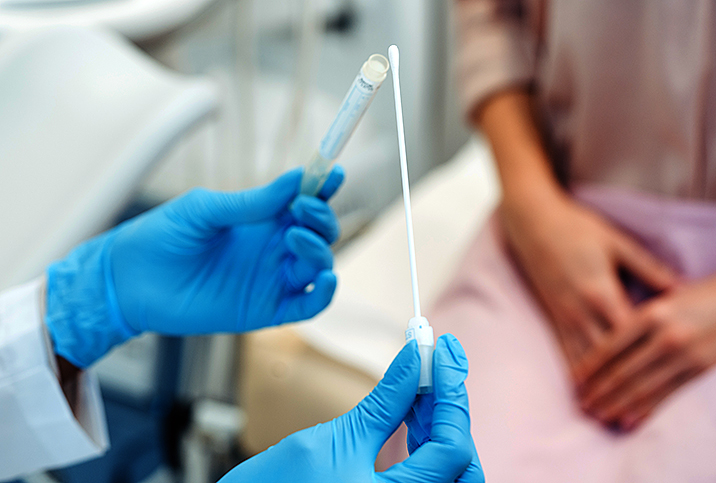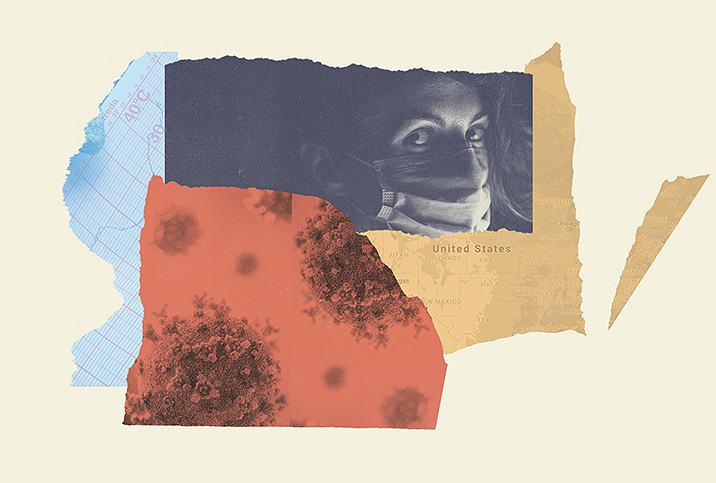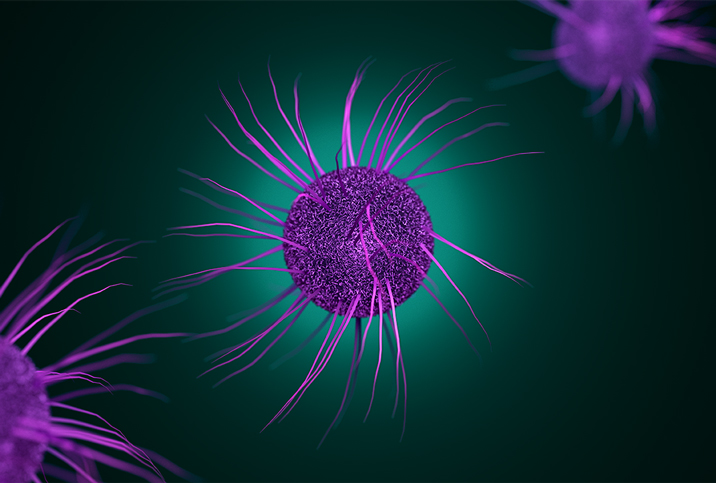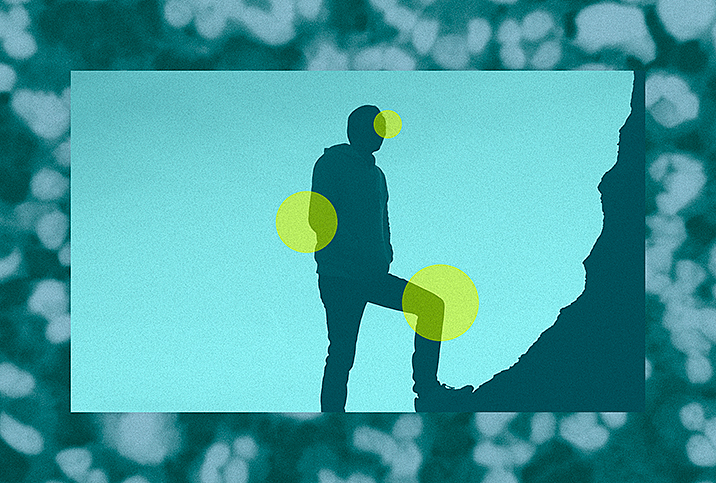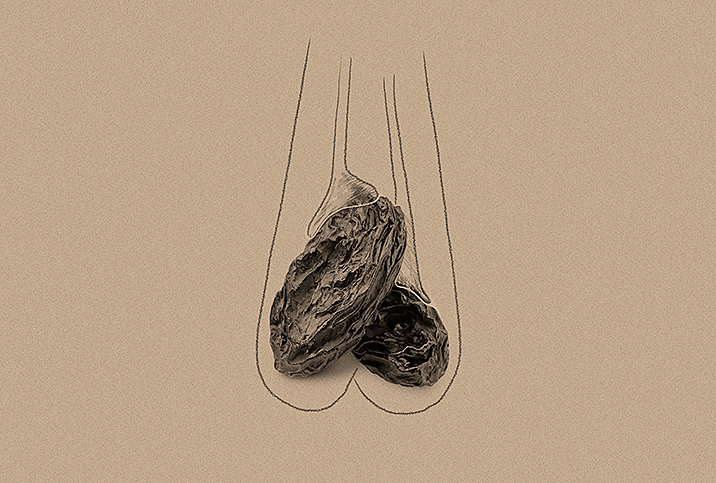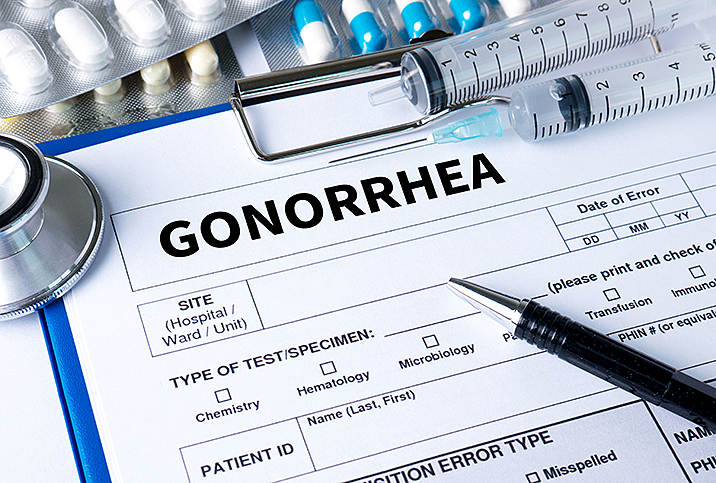The Simple 2 test lets users identify and treat infections without visiting a doctor's office.
By Kate Daniel
A new study indicates women lose more quality-adjusted life years to STIs than men.
By Kate Daniel
In rare cases, if untreated, this STD can spread and infect other body parts.
By Kate Daniel
You should know about the STD, such as how to determine if gonorrhea is resistant to treatment.
Getting treatment is the first step, but there's more you need to know for a successful outcome.
You may have no symptoms of an STD, but don't let that stop you from getting tested.
Since this STD often has no symptoms, it's important to understand how you can protect yourself.
Find out what expedited partner therapy and patient-delivered partner therapy are really about.
State health experts are urging sexually active residents to practice safer sex.
By Lauren Dodd
A new batch of research links the two bacteria, but safe sex practices are still most effective.
By Rachel Crowe
Spotting mid-menstrual cycle isn't typically cause for alarm, but here's what to keep in mind.
By Helen Massy
When it comes to STI prevention, education beats criminalization.
By Xenia E.
Getting in vitro fertilization? Though usually safe, learn the symptoms and signs of infection.
STIs and urinary issues cause most cases, so prevent the former and address the latter quickly.
Treatable in its early stages, this skin infection causes scrotal problems if ignored.
Even with state-mandated screening, women in low socioeconomic areas may face hurdles.
Two prevalent STIs make the list, but so do conditions not directly tied to reproduction.
You deserve love and connection regardless of your status.
By Kelly Kling
Urethra repair isn't any guy's dream, but this procedure is a long-term fix.
By David Hopper
Most are curable, but when left untreated, secondary complications can be life-threatening.
By Holly Ellis
That skin irritation could be a sign of an STI.
By Holly Ellis
Prevent or safely handle an asymptomatic infection with a bit of health management.
By Rachel Crowe
No one wants to contract an STD, but what if you get diagnosed with two of them? Ouch!
Whether due to bacteria, STIs or prostate issues, unusual leaks are telling you to see a doctor.
The infection in your urethra could be caused by a bacterium that experts are still studying.
By Anna Herod
Are antibiotic-resistant 'superbugs' real, or just good headlines for social media?
By Emily Blaire
It won't affect everyone, but this STD can lead to conditions that diminish erectile function.
By Anna Herod
Common sexually transmitted diseases are on the rise in the U.S. What's causing the increase?
By David Hopper
Take a closer look at the impact of sexually transmitted diseases on the immune system.
By Thea Engst
These STDs frequently get mistaken for each other, but here's what makes them different.
Penetrative sex isn't the only way STDs are spread. Oral sex requires caution, too.
Treating both chlamydia and gonorrhea is usually simple if caught early.
By Giddy Staff
Recognizing symptoms and getting tested are key to quicker treatment of these common STDs.
By Giddy Staff
It's important to know the facts about two of the most common and contagious STDs.
By Giddy Staff
Fitz-Hugh-Curtis syndrome is a rare threat, but it should be taken seriously if you have PID.
This scary-sounding STD resists treatment and shines a light on the importance of testing.
Gonorrhea is even more serious when you’re pregnant, so treatment is key to protect your baby.
What you don't know can hurt you. Get the facts you need to know about gonorrhea and chlamydia.
By Giddy Staff
Left untreated, gonorrhea can lead to several conditions that impact fertility. Testing is key.
By Thea Engst
Look out for the warning signs that might indicate an STD, especially if you're at risk.
By Erin Coleman
If a partner tests positive for an STD, use these tips to safely address the situation.
By Tory Lysik
Yes, it's sexually transmitted, but that doesn't mean this infection is limited to genitals.
By David Hopper
Improve the safety of your sex life.
Many times it's no big deal, but there may be situations where shrinkage is more serious.
Gonorrhea may show many symptoms, or none at all, so getting tested is key to your well-being.
By Erin Coleman
A possible STI is not the end of the world. Keep a level head and act quickly for best results.
By Emily Blaire
The natural habitat of pubic lice is in danger, but are those pesky crabs gone for good?
By Derek Strum
Find out why you shouldn’t be complacent about contracting ‘less serious’ STDs like gonorrhea.
Getting tested is easy, and talking to your partner about it should be easy, too.







